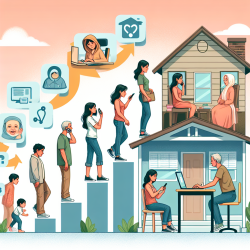The role of entrepreneurship education in fostering economic empowerment and social well-being among Native American adolescents is gaining attention. A recent randomized controlled trial (RCT) on the Arrowhead Business Group (ABG) intervention provides significant insights into how such programs can be effectively implemented to yield positive outcomes. This blog explores the findings of this research and offers guidance for practitioners looking to enhance their skills through the implementation of similar educational interventions.
The Impact of Youth Entrepreneurship Education
The ABG program was designed to improve entrepreneurship knowledge, economic empowerment, and social well-being among Native American youth. The study involved 394 participants from the White Mountain Apache Tribe, revealing significant improvements in these areas over a 24-month period. Practitioners can draw valuable lessons from this research to apply in their own contexts.
Key Findings
- Entrepreneurship Knowledge: The intervention group showed significant improvements in entrepreneurship knowledge compared to the control group, with sustained gains at 6, 12, and 24 months.
- Economic Empowerment: Participants reported increased economic confidence and security, as well as enhanced future planning and aspirations.
- Social Well-Being: The program fostered greater connectedness to parents, school, and community, contributing to improved psychosocial outcomes.
Implementing Insights into Practice
For practitioners looking to implement similar interventions, several strategies can be adopted based on the ABG program's success:
Cultural Relevance
The ABG program's emphasis on cultural grounding was crucial. Practitioners should tailor interventions to reflect the cultural values and history of the communities they serve. Engaging local leaders and incorporating traditional knowledge can enhance program relevance and acceptance.
Focus on Soft Skills
The development of soft skills such as communication, problem-solving, and goal setting was integral to the ABG curriculum. These skills not only support entrepreneurship but also contribute to overall personal development. Practitioners should incorporate soft skills training in their programs to foster holistic growth.
Sustained Engagement
The ABG program included follow-up workshops and mentorship opportunities that maintained participant engagement over time. Practitioners should design interventions that offer ongoing support and opportunities for participants to apply their learning in real-world contexts.
Community Involvement
The success of the ABG program was partly due to strong community involvement. Practitioners should work closely with community stakeholders to ensure programs are aligned with local needs and priorities. This collaboration can also facilitate resource sharing and support for participants.
Encouraging Further Research
The findings from the ABG study highlight the potential of entrepreneurship education to address both economic and social disparities in underserved communities. Practitioners are encouraged to conduct further research in their own contexts to explore additional benefits and refine intervention strategies.










